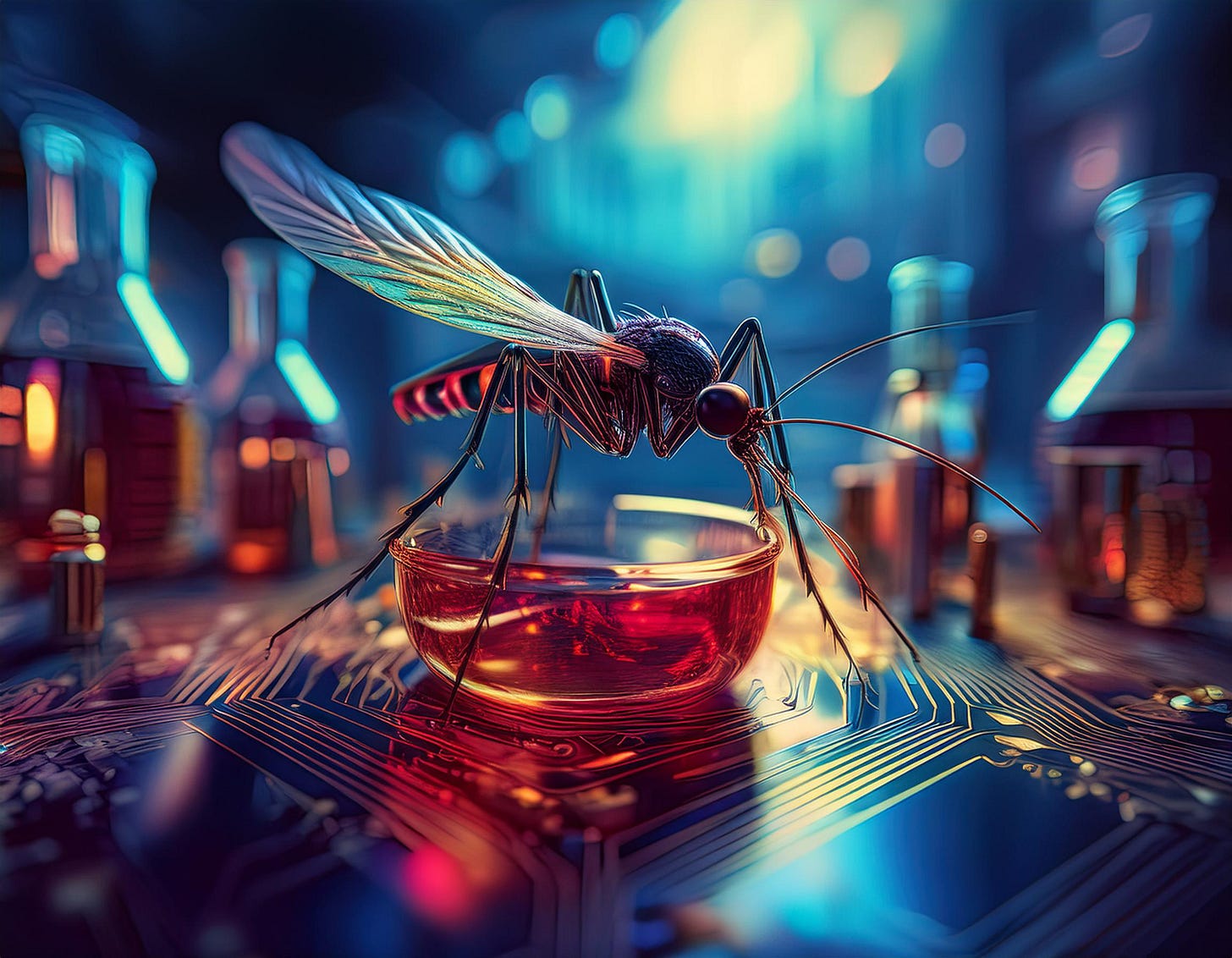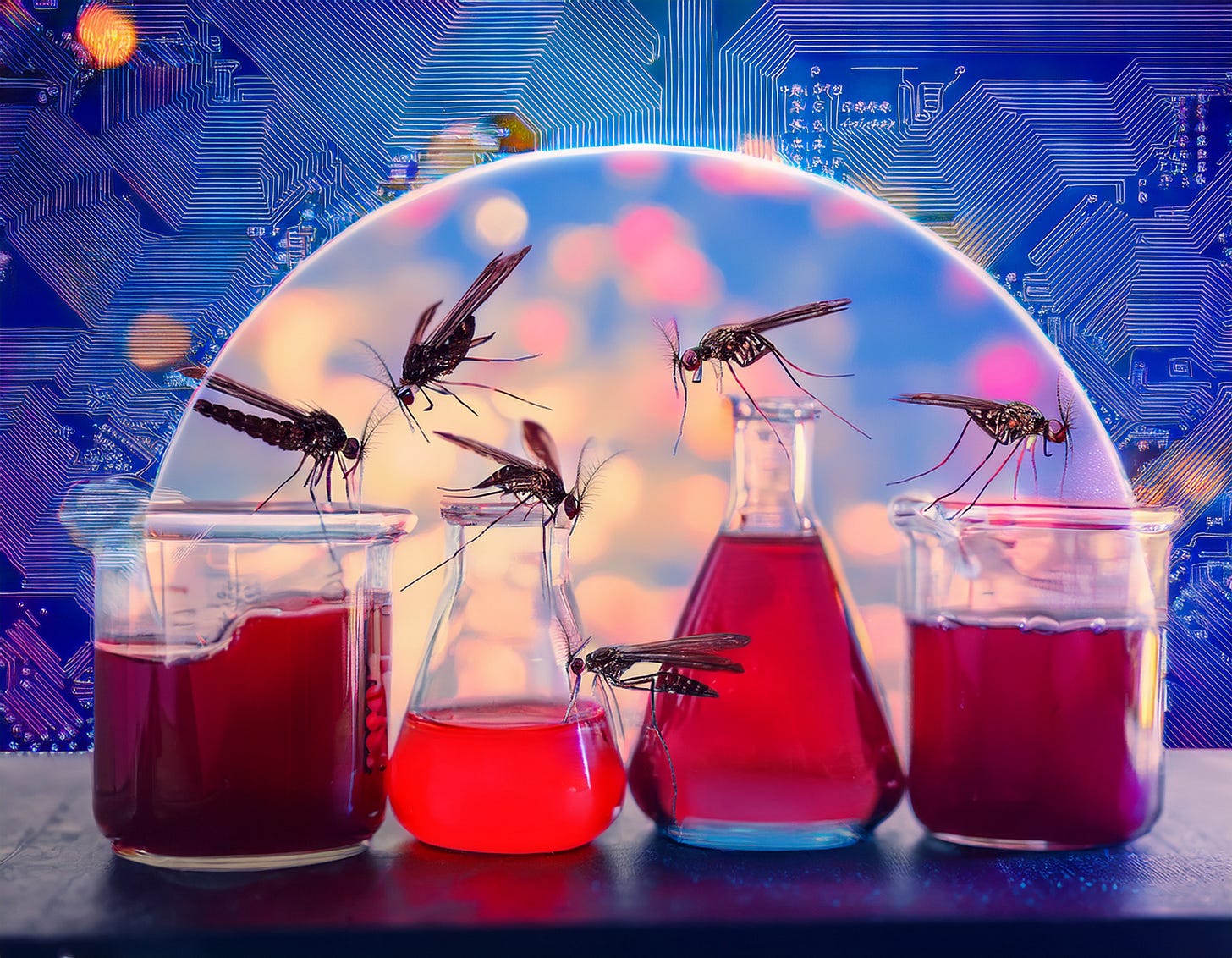DEADLINE TODAY: Comment on EPA’s Google Mosquito Registration
Send in your comment today opposing Google’s request for Section 3 registration of their mosquitoes for release in Hawai‘i
Last week, the U.S. Environmental Protection Agency (EPA) granted Hawai‘i Unites’ request to extend the comment period for Google’s request for Section 3 registration of their “Debug quinx males” bacteria-infected mosquitoes planned for release in Hawai‘i.
The deadline to send in comments is TODAY – Thursday, September 25th, 2025, at 5:59pm Hawai‘i Standard Time.
COMMENT on Google’s EPA Section 3 Request to Register Mosquitoes
I’m opposed to EPA approval of Google LLC’s FIFRA Section 3 registration request for Debug quinx males (DQB Males) Wolbachia-bacteria-infected mosquitoes Docket ID EPA-HQ-OPP-2024-0428.
Over 400 comments have now been received by the EPA, and those posted on the EPA docket show overwhelming opposition to registration of Google’s mosquitoes. These comments express the concerns of our community, and serious scientific risks of the project are documented. The mosquito release agencies benefiting from this cash cow biotech agenda in Hawai‘i are now scrambling to get their comments in and push for approval of Google’s mosquitoes.
Please take the time to comment in opposition to Google’s registration request so that our voices will be heard by the EPA.
Some commenters have experienced glitches with the system. If you’ve been unable to complete submittal using the comment box, you can send in your comment as a Word document or PDF by attaching it in the “Attach Files” box.
COMMENT on Google’s EPA Section 3 Request to Register Mosquitoes
More information about Google’s mosquito plans for the islands is in our newsletter:
“Google is now directly targeting the Hawaiian Islands with their experimental lab-altered mosquitoes, seeking to register their ‘Debug quinx males’ (DQB Males) mosquitoes with the EPA under Section 3 of the Federal Insecticide, Fungicide, and Rodenticide Act (FIFRA). According to EPA docket documents, the original applicant for this registration was Verily Life Sciences, a subsidiary of Google’s parent company Alphabet. Verily is the manufacturer of the mosquitoes currently being released on Maui and Kaua‘i under EPA Section 18 Emergency Exemption. No explanation is given for the change of Section 3 applicant from Verily to Google.”
“With no data showing safety or efficacy of the Wolbachia-infected mosquitoes currently being released in Hawai‘i under EPA Section 18 emergency exemption, Google now wants to plow ahead with Section 3 registration of their mosquito product, specifically for release in Hawai‘i. If this registration is allowed to move forward, it won’t be long before the biotech industry starts pushing these mosquitoes for conservation use throughout the country and worldwide and pushing for their use to control mosquitoes in the name of public health.”
Details that can be included in your comment describe some of the significant concerns about these lab-altered mosquitoes:
I’m opposed to EPA approval of Google LLC’s FIFRA Section 3 registration request for Debug quinx males (DQB Males) Wolbachia-bacteria-infected mosquitoes Docket ID EPA-HQ-OPP-2024-0428. These mosquitoes are an experiment that could harm the health of Hawai‘i’s people, wildlife, and ecosystems. Peer-reviewed studies have shown Wolbachia to cause mosquitoes to become more capable of transmitting avian malaria and West Nile virus (bird and human). Southern house mosquitoes transmit human diseases, including West Nile virus, elephantiasis, encephalitis, and potentially Zika virus. Male mosquitoes transmit bacteria and pathogens to females. Pathogen screenings for these lab-altered mosquitoes are unknown, and that information is being withheld from the public. EPA guidelines allow for the release of thousands of female mosquitoes that bite, breed, and spread disease. There are no known biosecurity protocols for the imported mosquitoes, and no mitigation measures in place if something goes wrong. Population replacement of wild mosquitoes with the lab-altered mosquitoes could cause significant impacts.
The EPA has failed to address tropical disease expert Dr. Lorrin Pang’s serious concerns about horizontal transmission of introduced bacteria, biopesticide wind drift of lab-altered mosquitoes into unintended areas, superinfection of mosquitoes with multiple bacteria strains, increased pathogen infection and disease-spreading capability in mosquitoes, and the experimental nature of the release plan.
No studies have been done to evaluate the direct, indirect, and cumulative impacts of these mosquito releases. Mosquito release agency partners in Hawai‘i have been releasing millions of DQB Males mosquitoes on Maui since 2023 and on Kaua‘i since early this year. These agencies have produced no public data on the results of these releases. These lab-altered southern house mosquitoes, and the Wolbachia bacteria they’re infected with, are life forms, and there is no way for this experimental project to be self-contained. The release of these mosquitoes could cause the extinction of endangered native birds, and it may impact human health.
I’m opposed to the exploitative use of the Hawaiian Islands as testing grounds for the biotech industry. I do not consent to the targeted use of these Debug quinx males (DQB Males) in Hawai‘i, and I oppose Google LLC’s Section 3 registration request.
Mahalo for standing with us and documenting our opposition to these dangerous mosquito release experiments on sacred lands.
Your tax-deductible donations support the work that we’re doing to protect the ‘āina.
Aloha,
Tina Lia
Founder
Hawai‘i Unites
HawaiiUnites.org
Hawai‘i Unites is a 501(c)(3) nonprofit organization dedicated to the conservation and protection of our environment and natural resources. Your tax-deductible donations help us to fulfill our mission of honoring and protecting our sacred connection to the natural world.
Report a Mosquito Bite
The State of Hawai‘i and its multi-agency partnership Birds, Not Mosquitoes have been releasing bacteria-infected mosquitoes in East Maui and conducting pilot study releases on Kaua‘i since 2023. As part of our ongoing research and documentation, Hawai‘i Unites has been compiling reports from throughout the islands about unusual mosquito bite reactions. If you’ve been bitten by a mosquito and would like to report the incident, please complete our Mosquito Bite Incident Report.





Done. 🤙